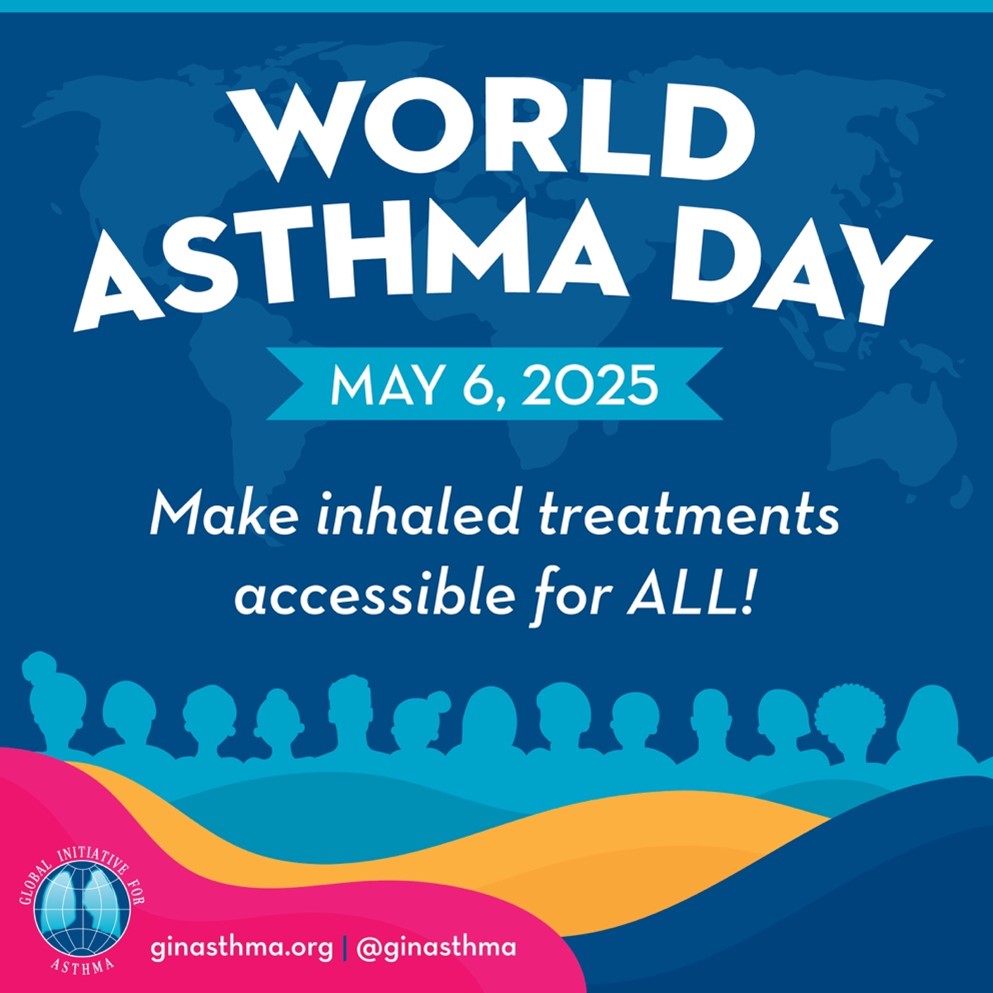World Asthma Day 2025 - make inhaled treatments accessible for all!
Published in Healthcare & Nursing, General & Internal Medicine, and Pharmacy & Pharmacology


This is the first World Asthma Day that we celebrate since the new ownership arrangements between the Journal and the International Primary Care Respiratory Group. Therefore we thought it was a good opportunity to share some of the papers relevant to our joint goals of enabling research of good quality in the primary care domain – both as the place of research and the place of implementation – to improve the care received by patients and the outcomes they experience.
While we wholeheartedly support the World Asthma Day call for inhaled treatments accessible to all, of course, the first step is accurate diagnosis. This paper describes a novel and adaptable way to teach the clinical diagnosis of asthma in primary care. The asthma diagnosis jigsaw puzzle: an adaptable teaching concept to facilitate the diagnosis of asthma in adults and children presenting to primary care.
This paper has led to the publication of IPCRG’s desktop helpers No. 15 the ‘jigsaw puzzle’ approach to building a diagnostic picture of asthma in primary care over time, and also No 18 Usefulness of Peak Expiratory Flow (PEF) in Everyday Clinical Practice for Asthma.
These resources are available in multiple languages and have prompted novel teaching and learning development in IPCRG member countries such as India, North Macedonia, Malaysia and Uganda.
Barriers to good quality care remain in primary care, and this paper describes what IPCRG believes are enablers, and how available they are globally. It also lays out a call to action. How to make Asthma Right Care ‘easy’ in primary care: learnings from the 2023 Asthma Right Care Summit.
A more detailed analysis of barriers is examined in a paper arising partly funded from a small grant from IPCRG as part of the research prioritisation programme.
Beliefs surrounding the use of inhaled asthma medication in The Gambia: a qualitative study of asthma patients and healthcare workers (Shami's).
The positive impact of primary care adoption of evidence-based asthma care can be shown in this paper from Singapore, although it highlights continued adherence challenges: Asthma prescribing trends, inhaler adherence and outcomes: a Real-World Data analysis of a multi-ethnic Asian Asthma population. This emphasises the point of IPCRG’s Right Care approach: shifting guidelines and practice to do the right things also needs to be accompanied by teaching and learning of clinicians and patients to do them right.
On the topic of Right Care, IPCRG has launched Rhinitis Right Care and so this systematic review from colleagues in the Netherlands showing the impact of treating allergic rhinitis on asthma control is timely: The effect of allergic rhinitis treatment on asthma control: a systematic review.
And as a reminder, if you want a refresher on the Global Initiative on Asthma (GINA) recommendations for primary care take a look at Key recommendations for primary care from the 2022 Global Initiative for Asthma (GINA) update. Whilst GINA has an update every year, the key recommendations and rationale for primary care are explained here by the Emeritus Editor of the journal, Mark Levy, as first author.
PS IPCRG is launching a new micro-learning programme, Breaths, and the first is on asthma: Explore the first three Breaths here Each mini-course is around 5 minutes long, practical, and designed specifically for busy primary care professionals. We aim to support your clinical decision-making and strengthen patient care: one confident step at a time.
Explore the first three Breaths:
- Diagnosing Asthma: Strengthen your clinical reasoning using spirometry and peak flow.
- Inhaler Technique: Spot common patient errors and learn how to correct them effectively.
- Proactive Asthma Control: Increase your confidence in assessing asthma control.
Key links:
News on IPCRG’s activities to promote Asthma Right Care
Ioanna Tsiligianni, Editor-in-Chief
Follow the Topic
-
npj Primary Care Respiratory Medicine

This is an open access, online-only, multidisciplinary journal dedicated to publishing high-quality research in all areas of the primary care management of respiratory and respiratory-related allergic diseases.
Related Collections
With Collections, you can get published faster and increase your visibility.
Scoping Reviews, Systematic Reviews and Meta Analyses in Primary Care Respiratory Medicine
Publishing Model: Open Access
Deadline: Ongoing
AI in primary care respiratory research
Publishing Model: Open Access
Deadline: May 28, 2026





Please sign in or register for FREE
If you are a registered user on Research Communities by Springer Nature, please sign in